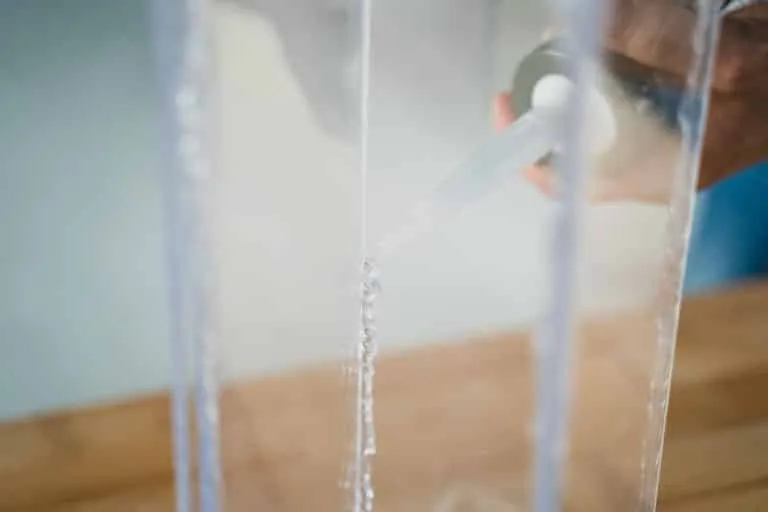PU Glue – Pros and Cons of Polyurethane Glue
Polyurethane glue (PU glue) is easy to apply and extremely resilient and versatile, at the same time. With PU glue you can easily bond different materials, such as wood and epoxy resin. Polyurethane glue cures very firmly and is also suitable for difficult vertical bonds.

Application of Polyurethane Glue
PU glue is a liquid multi-adhesive that you can use for almost any bonding. When working with adhesives, please wear safety glasses, a dust mask and disposable gloves to protect your skin, eyes and mucous membranes from contact with the polyurethane.
2-part polyurethane glue is available in practical double syringes that automatically mix both components in the correct ratio. Alternatively, you can buy two separate components and mix them yourself according to the instructions. Make sure to respect the pot life and apply the glue as quick as possible, because once it has cured, it cannot be liquefied again. The surfaces you want to bond must be clean and free of grease and dust. We recommend cleaning them with a lint-free cloth and some solvent. For even better adhesion, you can roughen the surface with sandpaper.
Then you spread glue evenly on one side and glue both surfaces together. By fixing them with screw clamps until the glue has hardened you ensure that the binding is solid and long-lasting.
Features and Benefits of PU Glue
Polyurethane glue is highly resistant to ageing, environmental and weather conditions. Furthermore, it is impact and shear resistant. It is applicable to almost all interior and exterior surfaces. PU glue is solvent-free, which makes day-long ventilation after the application unnecessary. It does not cause any discolouration or greasing on the substrate and is therefore also well suited for sensitive surfaces such as natural stone. The adhesive is highly reactive and therefore cures quickly. Its easy application makes polyurethane glue a popular choice for domestic and commercial use.
Polyurethane Glue for Your Project
EPODEX synthetic resin bonds materials just as well as PU glue. Due to its slower curing speed, however, epoxy resin is not suitable for vertical jobs. When working with smaller pieces polyurethane glue reduces the working time, due to its faster-curing speed. This way, you can proceed and finish your work faster. For example, you can use the adhesive to glue the legs to your river table or to connect a frame too small objects, when you create your own resin jewellery.


STEVE SMITH
Any questions? I am glad to help!
Fields of use and possible combinations
Polyurethane glue is universally applicable, you can use it for numerous materials and bond almost all surfaces. The possibility of combination bondings makes PU glue so versatile and popular.
Among others, it is suitable for:
- Wood
- Cast
- Synthetic resin
- Cork
- Aluminium
- Metal
- Plastics
- Stone
- Ceramics
- Porcelain
Thanks to its properties, polyurethane glue is particularly reliable and safe. On very large or level surfaces you can also use the less expensive epoxy resin. When using casting resin as an adhesive, you have a significantly longer curing time than with PU glue, which can be an advantage or disadvantage depending on your project.
